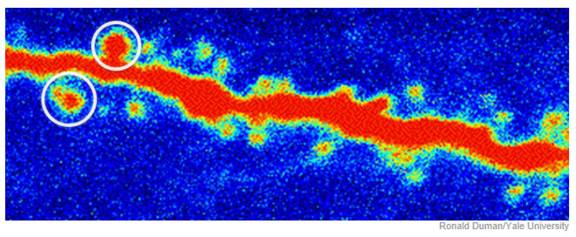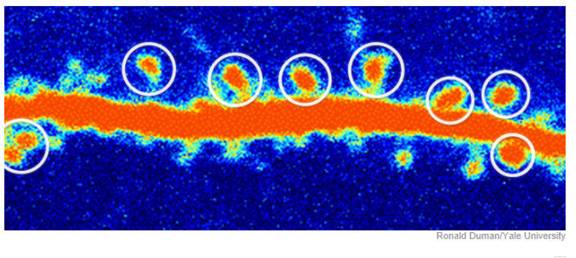 |
PART I: 9 - MINUTE AUDIO ... Click Here
PART II: 9 - MINUTE AUDIO ... Click Here |
How Ketamine Works To Treat DepressionTraditional antidepressants like Prozac work on a group of chemical messengers in the brain called the serotonin system. Researchers once thought that a lack of serotonin was the cause of depression, and that these drugs worked simply by boosting serotonin levels.
Recent research suggests a more complicated explanation. Serotonin drugs work by stimulating the birth of new neurons, which eventually form new connections in the brain. But creating new neurons takes time — a few weeks, at least — which is thought to explain the delay in responding to antidepressant medications.
Ketamine, in contrast, activates a different chemical system in the brain — the glutamate system. Researcher Ron Duman at Yale thinks ketamine rapidly increases the communication among existing neurons by creating new connections. This is a quicker process than waiting for new neurons to form and accomplishes the same goal of enhancing brain circuit activity.
To study how ketamine might work, Duman turned to rats. The first image below shows the neuron of a rat that has received no ketamine treatment. The small bumps and spots on the side of the neuron are budding connections between neurons.
Just hours after giving the rats doses of ketamine, Duman saw a dramatic increase in the number of new connections between brain cells. This increase in neuronal connectivity is thought to relieve depression.
|


